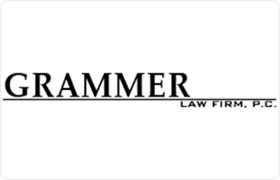 Coward Misdemeanor Lawyers, South Carolina
Coward Misdemeanor Lawyers, South Carolina
Sponsored Law Firm
-
 x
x

Click For More Info:
-
Grammer Law Firm, P.C.
1700 Oak St Conway, SC 29526» view mapCriminal Proudly Serving Horry County
You need an attorney with criminal defense knowledge who will vigorously protect your rights and interests.
800-957-8401
Not enough matches for Coward Misdemeanor lawyer.
Below are all Coward Criminal lawyers.
Lawyers
1-5 of 5 matches
Corporate, Criminal, Insurance, Litigation
Personal Injury, Insurance, Criminal, Lawsuit & Dispute, Litigation
Litigation, Federal Appellate Practice, Criminal, Personal Injury



 William Grammer Myrtle Beach, SC
William Grammer Myrtle Beach, SC AboutGrammer Law Firm, P.C.
AboutGrammer Law Firm, P.C. Practice AreasExpertise
Practice AreasExpertise